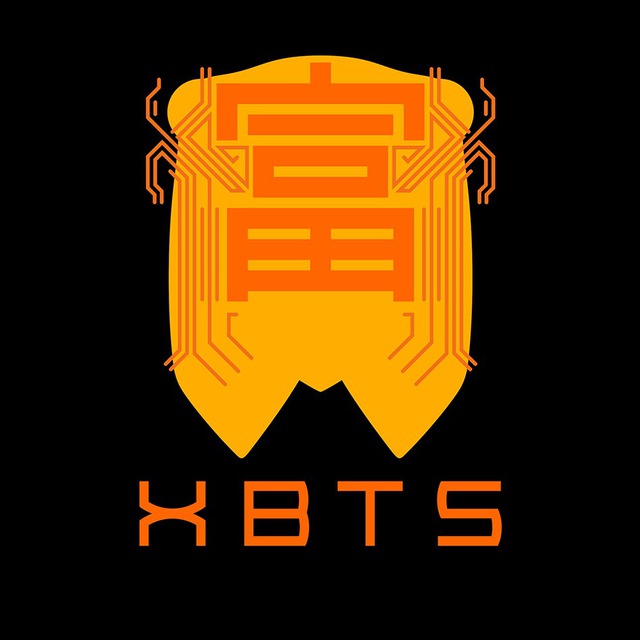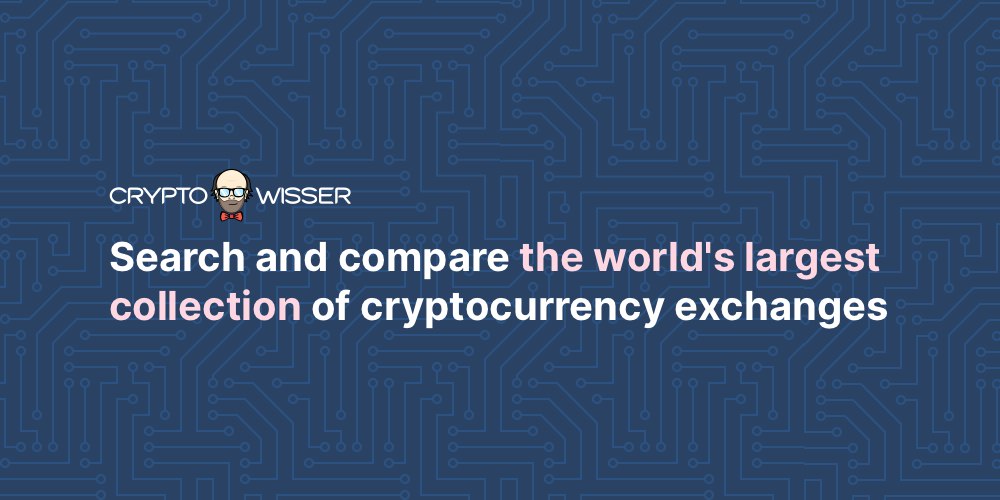AM
Size: a a a
2020 October 05
It's good for bulk order or exchange of asset with mutual consent without affecting market too much
Agreed
DB
Agreed
DB
Agreed
We are waiting for new feature to release on blockchain named as "timed transfer" :)
AM
We are waiting for new feature to release on blockchain named as "timed transfer" :)
It's proposals with a review period
AM
Already doable on chain
AM
Just need Ui
DB
Already doable on chain
That's Great. We are waiting for UI so can be used easily.
AM
That's Great. We are waiting for UI so can be used easily.
If I'm correct nobody is working on the UI
AM
If you want it it's better that you work it out
AM
E
New article from popular cryptoblogger Gennady M:
"CryptoWiser has published a list of crypto exchanges https://www.cryptowisser.com/exchange-graveyard/ that have died this year. Only 75 exchanges were closed in 2020 and this is 56% more than in 2019.
The main reason for the collapse of cryptocurrency exchanges is hacking, fraud, voluntary closure and actions of government agencies. But in reality, the main problem in the crypto exchange business is that decentralized exchanges are replacing centralized exchanges. To a lesser extent, derivatives exchanges and non-crypto alternatives are to blame for this, which pull investors' funds from the cryptocurrency markets.
Decentralized Exchanges (DEXs) usually have servers scattered around the world making them less vulnerable to hacker attacks, and they tend to offer lower fees (sometimes zero) as well. They are also capable of handling more trading volume and are often more attractive than centralized crypto exchanges.
And another important advantage of DEX is complete anonymity, lack of verification, and most importantly, your funds will never be blocked by the decision of the authorities or because they are received from so-called “dubious” sources.
But now, thanks to the company with a dubious reputation Chainalysis, https://www.chainalysis.com/, engaged in financial intelligence and leaking information about all transactions in the blockchain of Bitcoin, ETH, Dash, Zec to special services, software has been installed on large exchanges. immediately marks your bitcoins as dirty if, before they get to your wallet, they were stolen or received for the sale of illegal goods from the darkent.
This software is installed on major centralized exchanges such as Binance, Bittrex, Bitfinex, and Paxful. Over the next year, according to the initiative of the American Congress, unified legislation will be issued, taking into account the rights of 57 states for crypto exchanges. It will spell out all the procedures, including the AML procedures developed by the FATF, as well as the mandatory availability of software that can detect and block dirty money.
Now, when sending cryptocurrencies to centralized exchanges, you cannot be sure that your exchange account will not be blocked due to the recognition of even some of your bitcoins as "dirty". This behavior of centralized exchanges contradicts the very ideology of bitcoin as an anonymous and free alternative to fiat money.
I would like to join the opinion of Vitalik Buterin, who wished the centralized exchanges to burn in hell for a long time. And I hope that next year, large centralized exchanges will continue to die, and new fast DEXs with good liquidity will come in their place."
"CryptoWiser has published a list of crypto exchanges https://www.cryptowisser.com/exchange-graveyard/ that have died this year. Only 75 exchanges were closed in 2020 and this is 56% more than in 2019.
The main reason for the collapse of cryptocurrency exchanges is hacking, fraud, voluntary closure and actions of government agencies. But in reality, the main problem in the crypto exchange business is that decentralized exchanges are replacing centralized exchanges. To a lesser extent, derivatives exchanges and non-crypto alternatives are to blame for this, which pull investors' funds from the cryptocurrency markets.
Decentralized Exchanges (DEXs) usually have servers scattered around the world making them less vulnerable to hacker attacks, and they tend to offer lower fees (sometimes zero) as well. They are also capable of handling more trading volume and are often more attractive than centralized crypto exchanges.
And another important advantage of DEX is complete anonymity, lack of verification, and most importantly, your funds will never be blocked by the decision of the authorities or because they are received from so-called “dubious” sources.
But now, thanks to the company with a dubious reputation Chainalysis, https://www.chainalysis.com/, engaged in financial intelligence and leaking information about all transactions in the blockchain of Bitcoin, ETH, Dash, Zec to special services, software has been installed on large exchanges. immediately marks your bitcoins as dirty if, before they get to your wallet, they were stolen or received for the sale of illegal goods from the darkent.
This software is installed on major centralized exchanges such as Binance, Bittrex, Bitfinex, and Paxful. Over the next year, according to the initiative of the American Congress, unified legislation will be issued, taking into account the rights of 57 states for crypto exchanges. It will spell out all the procedures, including the AML procedures developed by the FATF, as well as the mandatory availability of software that can detect and block dirty money.
Now, when sending cryptocurrencies to centralized exchanges, you cannot be sure that your exchange account will not be blocked due to the recognition of even some of your bitcoins as "dirty". This behavior of centralized exchanges contradicts the very ideology of bitcoin as an anonymous and free alternative to fiat money.
I would like to join the opinion of Vitalik Buterin, who wished the centralized exchanges to burn in hell for a long time. And I hope that next year, large centralized exchanges will continue to die, and new fast DEXs with good liquidity will come in their place."
E
Go to Dex🚀
DB
New article from popular cryptoblogger Gennady M:
"CryptoWiser has published a list of crypto exchanges https://www.cryptowisser.com/exchange-graveyard/ that have died this year. Only 75 exchanges were closed in 2020 and this is 56% more than in 2019.
The main reason for the collapse of cryptocurrency exchanges is hacking, fraud, voluntary closure and actions of government agencies. But in reality, the main problem in the crypto exchange business is that decentralized exchanges are replacing centralized exchanges. To a lesser extent, derivatives exchanges and non-crypto alternatives are to blame for this, which pull investors' funds from the cryptocurrency markets.
Decentralized Exchanges (DEXs) usually have servers scattered around the world making them less vulnerable to hacker attacks, and they tend to offer lower fees (sometimes zero) as well. They are also capable of handling more trading volume and are often more attractive than centralized crypto exchanges.
And another important advantage of DEX is complete anonymity, lack of verification, and most importantly, your funds will never be blocked by the decision of the authorities or because they are received from so-called “dubious” sources.
But now, thanks to the company with a dubious reputation Chainalysis, https://www.chainalysis.com/, engaged in financial intelligence and leaking information about all transactions in the blockchain of Bitcoin, ETH, Dash, Zec to special services, software has been installed on large exchanges. immediately marks your bitcoins as dirty if, before they get to your wallet, they were stolen or received for the sale of illegal goods from the darkent.
This software is installed on major centralized exchanges such as Binance, Bittrex, Bitfinex, and Paxful. Over the next year, according to the initiative of the American Congress, unified legislation will be issued, taking into account the rights of 57 states for crypto exchanges. It will spell out all the procedures, including the AML procedures developed by the FATF, as well as the mandatory availability of software that can detect and block dirty money.
Now, when sending cryptocurrencies to centralized exchanges, you cannot be sure that your exchange account will not be blocked due to the recognition of even some of your bitcoins as "dirty". This behavior of centralized exchanges contradicts the very ideology of bitcoin as an anonymous and free alternative to fiat money.
I would like to join the opinion of Vitalik Buterin, who wished the centralized exchanges to burn in hell for a long time. And I hope that next year, large centralized exchanges will continue to die, and new fast DEXs with good liquidity will come in their place."
"CryptoWiser has published a list of crypto exchanges https://www.cryptowisser.com/exchange-graveyard/ that have died this year. Only 75 exchanges were closed in 2020 and this is 56% more than in 2019.
The main reason for the collapse of cryptocurrency exchanges is hacking, fraud, voluntary closure and actions of government agencies. But in reality, the main problem in the crypto exchange business is that decentralized exchanges are replacing centralized exchanges. To a lesser extent, derivatives exchanges and non-crypto alternatives are to blame for this, which pull investors' funds from the cryptocurrency markets.
Decentralized Exchanges (DEXs) usually have servers scattered around the world making them less vulnerable to hacker attacks, and they tend to offer lower fees (sometimes zero) as well. They are also capable of handling more trading volume and are often more attractive than centralized crypto exchanges.
And another important advantage of DEX is complete anonymity, lack of verification, and most importantly, your funds will never be blocked by the decision of the authorities or because they are received from so-called “dubious” sources.
But now, thanks to the company with a dubious reputation Chainalysis, https://www.chainalysis.com/, engaged in financial intelligence and leaking information about all transactions in the blockchain of Bitcoin, ETH, Dash, Zec to special services, software has been installed on large exchanges. immediately marks your bitcoins as dirty if, before they get to your wallet, they were stolen or received for the sale of illegal goods from the darkent.
This software is installed on major centralized exchanges such as Binance, Bittrex, Bitfinex, and Paxful. Over the next year, according to the initiative of the American Congress, unified legislation will be issued, taking into account the rights of 57 states for crypto exchanges. It will spell out all the procedures, including the AML procedures developed by the FATF, as well as the mandatory availability of software that can detect and block dirty money.
Now, when sending cryptocurrencies to centralized exchanges, you cannot be sure that your exchange account will not be blocked due to the recognition of even some of your bitcoins as "dirty". This behavior of centralized exchanges contradicts the very ideology of bitcoin as an anonymous and free alternative to fiat money.
I would like to join the opinion of Vitalik Buterin, who wished the centralized exchanges to burn in hell for a long time. And I hope that next year, large centralized exchanges will continue to die, and new fast DEXs with good liquidity will come in their place."
Great article 👍
DB
That's true, demand for DEX will be high in future and more liquidity or transactions will come to Dex rather than cex
E
That's true, demand for DEX will be high in future and more liquidity or transactions will come to Dex rather than cex
The Bitshares 5.0 blockchain update makes this possible. When we finish working on the new interface for XBTS, the entrance for new traders will be even easier and more convenient. We are constantly working to improve the trading process.
2020 October 06
CP
XBTS is my favorite dex
A
The Bitshares 5.0 blockchain update makes this possible. When we finish working on the new interface for XBTS, the entrance for new traders will be even easier and more convenient. We are constantly working to improve the trading process.
👍
A
indeed i agree
S

Have a good day!






